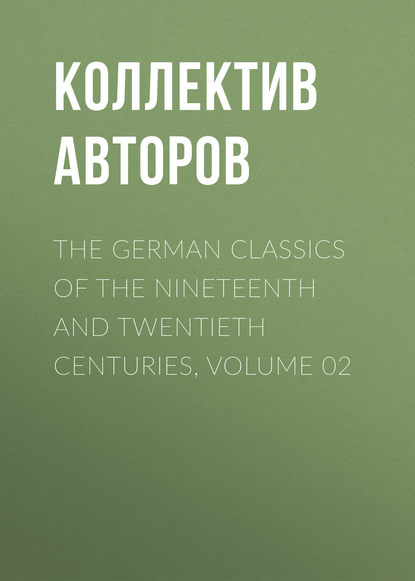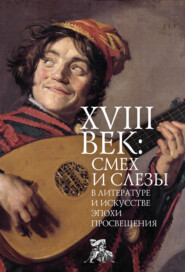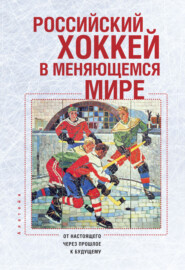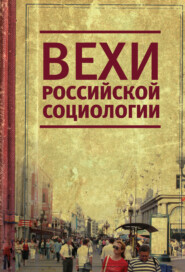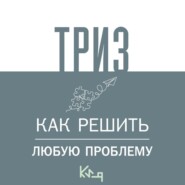По всем вопросам обращайтесь на: info@litportal.ru
(©) 2003-2024.
✖
The German Classics of the Nineteenth and Twentieth Centuries, Volume 02
Настройки чтения
Размер шрифта
Высота строк
Поля
I could not help laughing with surprise when I heard this. "Every wax-taper," I said, "every illuminated cloud of smoke from the kitchen, that has anything dark behind it, every morning mist, when it lies before a steady spot, daily convinces me of the origin of blue color, and makes me comprehend the blueness of the sky. What the Newtonians mean when they say that the air has the property of absorbing other colors, and of repelling blue alone, I cannot at all understand, nor do I see what use or pleasure is to be derived from a doctrine in which all thought stands still, and all sound observation completely vanishes."
"My good innocent friend," said Goethe, "these people do not care a jot about thoughts and observations. They are satisfied if they have only words which they can pass as current, as was well shown and not ill-expressed by my own Mephistopheles:
"Mind, above all, you stick to words,
Thus through the safe gate you will go
Into the fane of certainty;
For when ideas begin to fail
A word will aptly serve your turn," etc.
Goethe recited this passage laughing, and seemed altogether in the best humor. "It is a good thing," said he, "that all is already in print, and I shall go on printing as long as I have anything to say against false doctrine, and those who disseminate it.
"We have now excellent men rising up in natural science," he continued, after a pause, "and I am glad to see them. Others begin well, but afterwards fall off; their predominating subjectivity leads them astray. Others, again, set too much value on facts, and collect an infinite number, by which nothing is proved. On the whole, there is a want of originating mind to penetrate back to the original phenomena, and master the particulars that make their appearance."
A short visit interrupted our discourse, but when we were again alone the conversation returned to poetry, and I told Goethe that I had of late been once more studying his little poems, and had dwelt especially upon two of them, viz., the ballad[20 - This poem is simply entitled "Ballade," and begins "Herein, O du Guter! du Alter herein!"—Trans.] about the children and the old man, and the "Happy Couple" (die glücklichen Gatten).
"I myself set some value on these two poems," said Goethe, "although the German public have hitherto not been able to make much out of them."
"In the ballad," I said, "a very copious subject is brought into a very limited compass, by means of all sorts of poetical forms and artifices, among which I especially praise the expedient of making the old man tell the children's past history down to the point where the present moment comes in, and the rest is developed before our eyes."
"I carried the ballad a long time about in my head," said Goethe, "before I wrote it down. Whole years of reflection are comprised in it, and I made three or four trials before I could reduce it to its present shape."
"The poem of the 'Happy Couple,'" continued Goethe, "is likewise rich in motives; whole landscapes and passages of human life appear in it, warmed by the sunlight of a charming spring sky, which is diffused over the whole."
"I have always liked that poem," said Goethe, "and I am glad that you have regarded it with particular interest. The ending of the whole pleasantry with a double christening is, I think, pretty enough."
We then came to the Bürgergeneral (Citizengeneral); with respect to which I said that I had been lately reading this piece with an Englishman, and that we had both felt the strongest desire to see it represented on the stage. "As far as the spirit of the work is concerned," said I, "there is nothing antiquated about it; and with respect to the details of dramatic development, there is not a touch that does not seem designed for the stage."
"It was a very good piece in its time," said Goethe, "and caused us many a pleasant evening. It was, indeed, excellently cast, and had been so admirably studied that the dialogue moved along as glibly as possible. Malcolmi played Märten, and nothing could be more perfect.
"The part of Schnaps," said I, "seems to me no less felicitous. Indeed, I should not think there were many better or more thankful parts in the repertoire. There is in this personage, as in the whole piece, a clearness, an actual presence, to the utmost extent that can be desired for a theatre. The scene where he comes in with the knapsack, and produces the things one after another, where he puts the moustache on Märten, and decks himself with the cap of liberty, uniform, and sword, is among the best." "This scene," said Goethe, "used always to be very successful on our stage. Then the knapsack, with the articles in it, had really an historical existence. I found it in the time of the Revolution, on my travels along the French border, when the emigrants, on their flight, had passed through, and one of them might have lost it or thrown it away. The articles it contained were just the same as in the piece. I wrote the scene upon it, and the knapsack, with all its appurtenances, was always introduced, to the no small delight of our actors."
The question whether the Bürgergeneral could still be played with any interest or profit, was for a while the subject of our conversation.
Goethe then asked about my progress in French literature, and I told him that I still took up Voltaire from time to time, and that the great talent of this man gave me the purest delight.
"I still know but little of him," said I; "I keep to his short poems addressed to persons, which I read over and over again, and which I cannot lay aside."
"Indeed," said Goethe, "all is good which is written by so great a genius as Voltaire, though I cannot excuse all his profanity. But you are right to give so much time to those little poems addressed to persons; they are unquestionably among the most charming of his works. There is not a line which is not full of thought, clear, bright, and graceful."
"And we see," said I, "his relations to all the great and mighty of the world, and remark with pleasure the distinguished position taken by himself, inasmuch as he seems to feel himself equal to the highest, and we never find that any majesty can embarrass his free mind even for a moment."
"Yes," said Goethe, "he bore himself like a man of rank. And with all his freedom and audacity, he ever kept within the limits of strict propriety, which is, perhaps, saying still more. I may cite the Empress of Austria as an authority in such matters; she has repeatedly assured me, that in those poems of Voltaire's, there is no trace of crossing the line of convenance."
"Does your excellency," said I, "remember the short poem in which he makes to the Princess of Prussia, afterwards Queen of Sweden, a pretty declaration of love, by saying that he dreamed of being elevated to the royal dignity?"
"It is one of his best," said Goethe, and he recited the lines—
"Je vous aimais, princesse, et j'osais vous le dire;
Les Dieux et mon reveil ne m'ont pas tout ôté,
Je n'ai perdu que mon empire."
"How pretty that is! And never did poet have his talent so completely at command every moment as Voltaire. I remember an anecdote, when he had been for some time on a visit to Madame du Chatelet. Just as he was going away, and the carriage was standing at the door, he received a letter from a great number of young girls in a neighboring convent, who wished to play the 'Death of Julius Cæsar' on the birthday of their abbess, and begged him to write them a prologue. The case was too delicate for a refusal; so Voltaire at once called for pen and paper, and wrote the desired prologue, standing, upon the mantlepiece. It is a poem of perhaps twenty lines, thoroughly digested, finished, perfectly suited to the occasion, and, in short, of the very best class."
"I am very desirous to read it," said I.
"I doubt," said Goethe, "whether you will find it in your collection. It has only lately come to light, and, indeed, he wrote hundreds of such poems, of which many may still be scattered about among private persons."
"I found of late a passage in Lord Byron," said I, "from which I perceived with delight that even Byron had an extraordinary esteem for Voltaire. We may see in his works how much he liked to read, study, and make use of Voltaire.
"Byron," said Goethe, "knew too well where anything was to be got, and was too clever not to draw from this universal source of light."
The conversation then turned entirely upon Byron and several of his works, and Goethe found occasion to repeat many of his former expressions of admiration for that great genius.
"To all that your excellency says of Byron," said I, "I agree from the bottom of my heart; but, however great and remarkable that poet may be as a genius, I very much doubt whether a decided gain for pure human culture is to be derived from his writings."
"There I must contradict you," said Goethe; "the audacity and grandeur of Byron must certainly tend towards culture. We should take care not to be always looking for it in the decidedly pure and moral. Everything that is great promotes cultivation as soon as we are aware of it."
* * * * *
Thursday, February 12.—Goethe read me the thoroughly noble poem, "Kein Wesen kann zu nichts zerfallen" (No being can dissolve to nothing), which he had lately written.
"I wrote this poem," said he, "in contradiction to my lines—
'Denn alles muss zu nichts zerfallen
Wenn es im Seyn beharren will,' etc.
('For all must melt away to nothing
Would it continue still to be')—
which are stupid, and which my Berlin friends, on the occasion of the late assembly of natural philosophers, set up in golden letters, to my annoyance."
The conversation turned on the great mathematician, Lagrange, whose excellent character Goethe highly extolled.
"He was a good man," said he, "and on that very account, a great man. For when a good man is gifted with talent, he always works morally for the salvation of the world, as poet, philosopher, artist, or in whatever way it may be.
"I am glad," continued Goethe, "that you had an opportunity yesterday of knowing Coudray better. He says little in general society, but, here among ourselves, you have seen what an excellent mind and character reside in the man. He had, at first, much opposition to encounter, but he has now fought through it all and enjoys the entire confidence and favor of the court. Coudray is one of the most skilful architects of our time. He has adhered to me and I to him, and this has been of service to us both. If I had but known him fifty years ago!"
We then talked about Goethe's own architectural knowledge. I remarked that he must have acquired much in Italy.
"Italy gave me an idea of earnestness and greatness," said he, "but no practical skill. The building of the castle here in Weimar advanced me more than anything. I was obliged to assist, and even to make drawings of entablatures. I had a certain advantage over the professional people, because I was superior to them in intention."
We talked of Zelter.
"I have a letter from him," said Goethe, "in which he complains that the performance of the oratorio of the Messiah was spoiled for him by one of his female scholars, who sang an aria too weakly and sentimentally. Weakness is a characteristic of our age. My hypothesis is, that it is a consequence of the efforts made in Germany to get rid of the French. Painters, natural philosophers, sculptors, musicians, poets, with but few exceptions, all are weak, and the general mass is no better."
"Yet I do not give up the hope," said I, "of seeing suitable music composed for Faust."
"Quite impossible!" said Goethe. "The awful and repulsive passages which must occasionally occur, are not in the style of the time. The music should be like that of Don Juan. Mozart should have composed for Faust. Meyerbeer would, perhaps, be capable; but he would not touch anything of the kind;[21 - A It must be borne in mind that this was said before the appearance of "Robert le Diable," which was first produced in Paris, in November, 1831.—Trans.] he is too much engaged with the Italian theatres."





